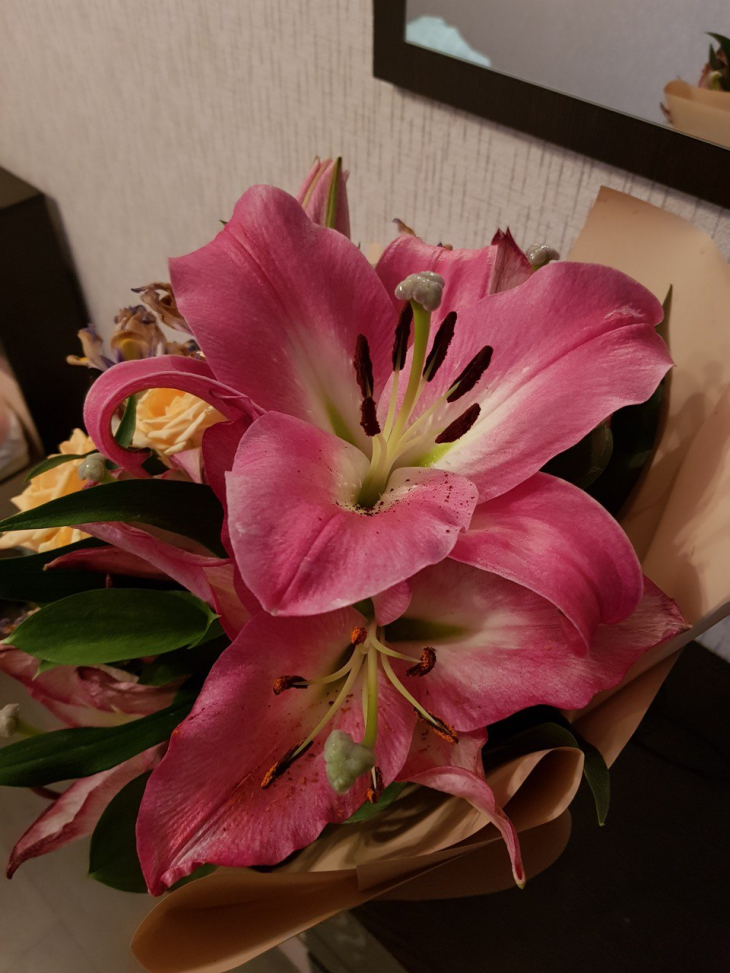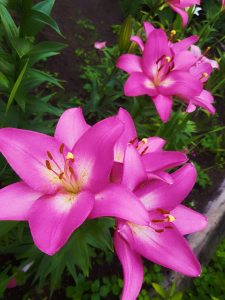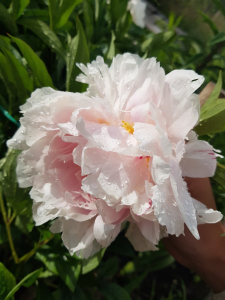
Flowers
Vol. 25, Issue 22, 07 April 2023
Flowers have been embodying the beauty, perfection, and uniqueness of nature for thousands of years. Scientists have counted more than 350,000 varieties of flowering plants. Each of them has its special flavor, color, and shape. They bring joy and charm to our life, making them brighter and happier. Flowers are associated with the sun, warmth, and spring, no matter what the weather is outside.
The most important feature of flowering plants is the presence of a flower, which is responsible for the functions of sexual reproduction and attracting pollination agents.
• Lilies are perennial herbs that propagate by bulbs. They have fleshy, long leaves, and a large, beautiful, fragrant flower. There are more than 110 species of lilies of different colors and sizes in the world. It is mainly distributed in Europe and Asia. This flower is a symbol of the first feelings, innocence, and beauty.

• Tulip – It is a perennial bulbous plant with about 110 species. The birthplace of the flower is Central Asia. They delight in their smell with the arrival of spring, so they are associated with this time of year.

• Roses – From Latin means the conqueror of women. And this is true: there is hardly a person in the world who does not admire this flower. The ancient Greek botanist, philosopher Theophrastus was the first to describe the rose and gave it a detailed description. But the Romans began to grow it in protected soil.
• Orchids – From ancient Greek means testicle. These beautifully flowering ornamental and wild plants have a magical smell and a bright diverse color.
• Carnation – From Greek means a divine flower. It used to be called the flower of Jupiter and Zeus. 350 species are distributed in Asia, Europe, Africa, and North America.
• Gladiolus – From Latin means a sword. The homeland of flowers is the subtropical and tropical regions of the Mediterranean and Africa. It includes 250 species.
• Peony – Got its name in honor of the doctor Peanu, who could treat wounds not only with people but also gods. The peony was known to man as early as 200 BC.

• Iris – The second name is Rainbow. The flower can be found on all continents of the world. There are about 800 species of them. Each flower is unique and has its shade and shape. It has no petals or sepals.
Interesting facts about flowers:
In ancient India, a person who gave a rose to the ruler could ask for the fulfillment of any of his desires. And the oil from this flower was valued at its weight in gold.
The world’s oldest rose grows in Germany. She knuckles in Hildesheim Cathedral. It is more than 1000 years old and it still blooms, spreading its bush over the roof of the building.
On the slopes of the South American mountains, there is a Puya Raymond flower. It blooms once every 150 years and then dies.
The largest flower on the planet is Arnold’s Rafflesia. Its weight is 11 kg, diameter is 91 cm. It grows on the island of Sumatra.
It is believed that the carnation first grew on Calvary at the place where the Virgin Mary looked at the suffering of Christ.
The most expensive flower in the world is the golden orchid. The price for it is $ 5000. She releases her first arrows only after 15 years of life.
History of floriculture:
The history of floriculture began a long time ago. In any case, the books mention the luxurious rose gardens of royalty and flower beds near fountains. However, today we will not go so far, but only make a brief excursion to a few centuries ago, how the development of floriculture took place.
For example, orchids grew in America, and from Indochina, it was possible to bring seedlings of citrus trees. All the people who traveled around the world sought to bring home a unique plant that had not grown here before. That’s how soon people became interested in growing exotic plants in their homes, and are doing it to this day.
Nowadays:
Today, few people can be surprised by floristry, that is, the ability to make various bouquets. There is also landscape design, which involves decorating the areas adjacent to the house. Potted flowers no longer surprise anyone, and rarely do we think about how the art of floriculture entered our lives. Previously, only wealthy merchants could afford to bring some outlandish flowers from abroad. Well, then the process of giving flowers became a rule of etiquette and just a sign of affection for a person. People sought to provide all the conditions for exotic plants to be grown at home. That’s how greenhouses appeared, which significantly expanded the possibilities of floriculture.
- New Year’s mood - 22nd November 2024
- Minimalism is a way of life. Where to begin? - 15th November 2024
- Why do you need an air humidifier? - 8th November 2024
